- About
- Academics
- Admissions & Aid
- Life
- Research
- News & Events
The Program at a glance
Culture meets creativity, technology, and intelligence.
Department
Learn More
The Morehouse Music Program fosters artistic talent, academic understanding, and respect for the highest professional standards.
Earn the Major
Learn more
Students must take an advisory examination in music theory before matriculation in the program. The academic program director or division chair advises and places beginning theory students and students who take the theory diagnostic exam in the appropriate music theory level.
Earn the Minor
Learn More
The music minor is a 16-18 credit hour course of study intended for the student who wishes to pursue a more in-depth study of music beyond the requirements of the general education curriculum through a variety of musical experiences.
About Music
-
Overview
THE MOREHOUSE MUSIC PROGRAM FOSTERS ARTISTIC TALENT, ACADEMIC UNDERSTANDING, AND RESPECT FOR THE HIGHEST PROFESSIONAL STANDARDS.
Our liberal arts curriculum encourages intellectual development, creativity, and perspective.
Music is essential to the appreciation of the human experience. We study the music of African Americans and the ways in which music from different cultures interact. Students who major in music are exposed to contemporary technologies to enhance their studies.
Majors choose an emphasis in performance (e.g., woodwinds, brass, strings, voice, piano, or organ), choral conducting and literature, or composition.
OUTCOMES
Music is a natural expression of the human experience. We produce Morehouse Men who understand music theory as the global language of music. Men who understand the terminology and tools employed in those styles, while not losing sight of the historical, socio-political, and ethical issues in the cultures that created them. Whether in the Western tradition or the African diaspora, our alumni are prepared to effectively communicate, and advocate for, music as an essential part of life. In our program, they acquire performance skills, such as proper technique and methods of preparation. They apply those skills through experience both in solo and ensemble performance and they gain practical experience with software related to specific music emphases.
Morehouse College is accredited by the National Association of Schools of Music to award a Bachelor of Arts in Music: 11250 Roger Bacon Drive, Suite 21; Reston, VA 20190-5248; (703)437-0700.
-
Earn the Major
Curriculum
BACHELOR OF ARTS IN MUSIC
Major Course of Study Requirements
Graduation requirements include:
- Completion of the 34-38 hour music core plus the additional 6-14 hours required in specific areas of emphasis
- Completion of applied music in the student’s principal instrument or area of emphasis every semester he is enrolled
- Participation in at least one of the performing organizations in the music program every semester the student is enrolled, up to a maximum of eight semesters
- Completion of HCOM 351 Professional Communication, which represents a designated elective, coming from the music student’s elective hours
- Completion of a piano proficiency exit examination
Students must take an advisory examination in music theory before matriculation in the program. The academic program director or division chair advises and places beginning theory students and students who take the theory diagnostic exam in the appropriate music theory level.
General Education (Core)
33-48 hoursRefer to the general education requirements for more information.
Music Major
26 hours- HMUS 117 and 118— Sight Singing and Ear Training
- HMUS 142 and 443— Music Seminar
- HMUS 251 and 252— Elementary Theory of Music
- HMUS 351 and 352— Advanced Theory of Music
- HMUS 353 and 354— History of Music
- HMUS 355— Contrapuntal Techniques
- HMUS 444— Senior Recital
Performance
12-14 hours- HMUS 101-402— Applied Music
Additional Corequisite Performance Seminars
- HMUS 112-413— Voice Seminar
- HMUS 123-424— Wind Seminar
- HMUS 125-426— String Seminar
- HMUS 131-432— Piano Seminar
Music Elective
3 hours- HCOM 351— Professional Communication
Music Ensemble
Up to 8 hoursDepartmental Ensembles
The faculty advisor must approve the choice of ensemble
to ensure that it complements the student’s chosen area of
emphasis or principal instrument.- HMUS 119 and 120— Glee Club
- HMUS 219 and 220— Glee Club
- HMUS 319 and 320— Glee Club
- HMUS 419 and 420— Glee Club
- HMUS 167— Marching Band
- HMUS 267— Marching Band
- HMUS 367— Marching Band
- HMUS 467— Marching Band
- HMUS 168— Jazz Ensemble
- HMUS 268— Jazz Ensemble
- HMUS 368— Jazz Ensemble
- HMUS 468— Jazz Ensemble
- HMUS 169— Concert Band
- HMUS 269— Concert Band
- HMUS 369— Concert Band
- HMUS 469— Concert Band
- HMUS 191 and 192— AUC Symphony Orchestra
- HMUS 291–292 AUC Symphony Orchestra
- HMUS 391 and 392— AUC Symphony Orchestra
- HMUS 491 and 492— AUC Symphony Orchestra
Additional Required Courses
For Emphasis in Voice
- HMUS 271 and 272— Singer’s Diction
- HMUS 271L and 272L— Singer’s Diction Lab
- HMUS 275 and 276— Vocal Literature
For Emphasis in Composition
- HMUS 206— Introduction to Composition
- HMUS 206L— Intro. to Composition Lab
- HMUS 305–406— Composition
- HMUS 305L–406L— Composition Lab
- HMUS 261— Orchestration
For Emphasis in Choral Conducting
- HMUS 264— Introduction to Conducting
- HMUS 363–464— Conducting
- HMUS 273-274— Choral Literature
Supplemental Courses
- HMUS 100— Music Fundamentals
- HMUS 108— Class Piano I
- HMUS 109— Class Piano II
-
Earn the Minor
Curriculum
MINOR IN MUSIC
The music minor is a 16-18 credit hour course of study intended for the student who wishes to pursue a more in-depth study of music beyond the requirements of the general education curriculum through a variety of musical experiences. The music minor is designed to enhance the student’s knowledge and appreciation of music as one of the liberal arts and to instill an awareness of the ways in which the music of African Americans interacts with music from different cultures. A minor in music may be used as a complement to the student’s major, especially for those who may wish to pursue further study in interrelated disciplines such as business and music, musical theater, or music therapy.
THEORY
4-6 HOURSStudents pursuing a music minor must complete two consecutive semesters in the theory sequence listed below at the 200 level or higher with a grade of C or better. The student’s initial course is determined by a placement examination. The student may be placed in MUS 100 Music Fundamentals to prepare him for the courses in the theory sequence. This class would be viewed as a development course and not as part of the hours counting toward the minor.
- HMUS 251 and 252— Elementary Theory of Music
- HMUS 351 and 352— Advanced Theory of Music
- HMUS 355— Contrapuntal Techniques
HISTORY AND LITERATURE, OR MUSIC INDUSTRY
6 HOURS- HMUS 111G— Masterpieces of Music
- HMUS 116G— Oral Traditions in African American Folk Music
- HMUS 203G— Introduction to Church Music
- HMUS 204G— Survey of African American Music
- HMUS 210G— History of Jazz
- HMUS 215— Introduction to the Music Industry
- HMUS 353–354— History of Music I and II
PERFORMANCE
4 HOURSThe student pursuing a music minor must complete four semesters of Applied Music with a grade of C or better. At least two of the semesters must be in the same discipline, and the student must enroll in any corresponding seminar courses (e.g., Voice Seminar is a required lab component for Applied Voice). Minors should perform at least twice in student recitals. The repertoire and performance level must be approved by the student’s applied teacher for inclusion in any student recital.
HMUS 101–202—
Applied MusicCorequisite Performance Seminars
- HMUS 112–213— Voice Seminar
- HMUS 123–224— Wind Seminar
- HMUS 125–226— String Seminar
- HMUS 131–232— Piano Seminar
ENSEMBLE
4 HOURSThe student pursuing a music minor must complete four semesters of participation in any of the ensembles sponsored by the Music Program: Glee Club, Marching Band, Concert Band, Jazz Ensemble, and Orchestra. The choice of the ensemble must be approved by the faculty advisor to ensure that it complements the student’s overall plan of study in the minor.
- HMUS 119–120— Glee Club
- HMUS 219–220— Glee Club
- HMUS 167— Marching Band
- HMUS 267— Marching Band
- HMUS 367— Marching Band
- HMUS 467— Marching Band
- HMUS 168— Jazz Ensemble
- HMUS 268— Jazz Ensemble
- HMUS 368— Jazz Ensemble
- HMUS 468— Jazz Ensemble
- HMUS 169— Concert Band
- HMUS 269— Concert Band
- HMUS 369— Concert Band
- HMUS 469— Concert Band
- HMUS 191–192— AUC Symphony Orchestra
- HMUS 291–292— AUC Symphony Orchestra
THE MOREHOUSE MUSIC PROGRAM FOSTERS ARTISTIC TALENT, ACADEMIC UNDERSTANDING, AND RESPECT FOR THE HIGHEST PROFESSIONAL STANDARDS.
Our liberal arts curriculum encourages intellectual development, creativity, and perspective.
Music is essential to the appreciation of the human experience. We study the music of African Americans and the ways in which music from different cultures interact. Students who major in music are exposed to contemporary technologies to enhance their studies.
Majors choose an emphasis in performance (e.g., woodwinds, brass, strings, voice, piano, or organ), choral conducting and literature, or composition.
OUTCOMES
Music is a natural expression of the human experience. We produce Morehouse Men who understand music theory as the global language of music. Men who understand the terminology and tools employed in those styles, while not losing sight of the historical, socio-political, and ethical issues in the cultures that created them. Whether in the Western tradition or the African diaspora, our alumni are prepared to effectively communicate, and advocate for, music as an essential part of life. In our program, they acquire performance skills, such as proper technique and methods of preparation. They apply those skills through experience both in solo and ensemble performance and they gain practical experience with software related to specific music emphases.
Morehouse College is accredited by the National Association of Schools of Music to award a Bachelor of Arts in Music: 11250 Roger Bacon Drive, Suite 21; Reston, VA 20190-5248; (703)437-0700.
Curriculum
BACHELOR OF ARTS IN MUSIC
Major Course of Study Requirements
Graduation requirements include:
- Completion of the 34-38 hour music core plus the additional 6-14 hours required in specific areas of emphasis
- Completion of applied music in the student’s principal instrument or area of emphasis every semester he is enrolled
- Participation in at least one of the performing organizations in the music program every semester the student is enrolled, up to a maximum of eight semesters
- Completion of HCOM 351 Professional Communication, which represents a designated elective, coming from the music student’s elective hours
- Completion of a piano proficiency exit examination
Students must take an advisory examination in music theory before matriculation in the program. The academic program director or division chair advises and places beginning theory students and students who take the theory diagnostic exam in the appropriate music theory level.
General Education (Core)
33-48 hours
Refer to the general education requirements for more information.
Music Major
26 hours
- HMUS 117 and 118— Sight Singing and Ear Training
- HMUS 142 and 443— Music Seminar
- HMUS 251 and 252— Elementary Theory of Music
- HMUS 351 and 352— Advanced Theory of Music
- HMUS 353 and 354— History of Music
- HMUS 355— Contrapuntal Techniques
- HMUS 444— Senior Recital
Performance
12-14 hours
- HMUS 101-402— Applied Music
Additional Corequisite Performance Seminars
- HMUS 112-413— Voice Seminar
- HMUS 123-424— Wind Seminar
- HMUS 125-426— String Seminar
- HMUS 131-432— Piano Seminar
Music Elective
3 hours
- HCOM 351— Professional Communication
Music Ensemble
Up to 8 hours
Departmental Ensembles
The faculty advisor must approve the choice of ensemble
to ensure that it complements the student’s chosen area of
emphasis or principal instrument.
- HMUS 119 and 120— Glee Club
- HMUS 219 and 220— Glee Club
- HMUS 319 and 320— Glee Club
- HMUS 419 and 420— Glee Club
- HMUS 167— Marching Band
- HMUS 267— Marching Band
- HMUS 367— Marching Band
- HMUS 467— Marching Band
- HMUS 168— Jazz Ensemble
- HMUS 268— Jazz Ensemble
- HMUS 368— Jazz Ensemble
- HMUS 468— Jazz Ensemble
- HMUS 169— Concert Band
- HMUS 269— Concert Band
- HMUS 369— Concert Band
- HMUS 469— Concert Band
- HMUS 191 and 192— AUC Symphony Orchestra
- HMUS 291–292 AUC Symphony Orchestra
- HMUS 391 and 392— AUC Symphony Orchestra
- HMUS 491 and 492— AUC Symphony Orchestra
Additional Required Courses
For Emphasis in Voice
- HMUS 271 and 272— Singer’s Diction
- HMUS 271L and 272L— Singer’s Diction Lab
- HMUS 275 and 276— Vocal Literature
For Emphasis in Composition
- HMUS 206— Introduction to Composition
- HMUS 206L— Intro. to Composition Lab
- HMUS 305–406— Composition
- HMUS 305L–406L— Composition Lab
- HMUS 261— Orchestration
For Emphasis in Choral Conducting
- HMUS 264— Introduction to Conducting
- HMUS 363–464— Conducting
- HMUS 273-274— Choral Literature
Supplemental Courses
- HMUS 100— Music Fundamentals
- HMUS 108— Class Piano I
- HMUS 109— Class Piano II
Curriculum
MINOR IN MUSIC
The music minor is a 16-18 credit hour course of study intended for the student who wishes to pursue a more in-depth study of music beyond the requirements of the general education curriculum through a variety of musical experiences. The music minor is designed to enhance the student’s knowledge and appreciation of music as one of the liberal arts and to instill an awareness of the ways in which the music of African Americans interacts with music from different cultures. A minor in music may be used as a complement to the student’s major, especially for those who may wish to pursue further study in interrelated disciplines such as business and music, musical theater, or music therapy.
THEORY
4-6 HOURS
Students pursuing a music minor must complete two consecutive semesters in the theory sequence listed below at the 200 level or higher with a grade of C or better. The student’s initial course is determined by a placement examination. The student may be placed in MUS 100 Music Fundamentals to prepare him for the courses in the theory sequence. This class would be viewed as a development course and not as part of the hours counting toward the minor.
- HMUS 251 and 252— Elementary Theory of Music
- HMUS 351 and 352— Advanced Theory of Music
- HMUS 355— Contrapuntal Techniques
HISTORY AND LITERATURE, OR MUSIC INDUSTRY
6 HOURS
- HMUS 111G— Masterpieces of Music
- HMUS 116G— Oral Traditions in African American Folk Music
- HMUS 203G— Introduction to Church Music
- HMUS 204G— Survey of African American Music
- HMUS 210G— History of Jazz
- HMUS 215— Introduction to the Music Industry
- HMUS 353–354— History of Music I and II
PERFORMANCE
4 HOURS
The student pursuing a music minor must complete four semesters of Applied Music with a grade of C or better. At least two of the semesters must be in the same discipline, and the student must enroll in any corresponding seminar courses (e.g., Voice Seminar is a required lab component for Applied Voice). Minors should perform at least twice in student recitals. The repertoire and performance level must be approved by the student’s applied teacher for inclusion in any student recital.
HMUS 101–202—
Applied Music
Corequisite Performance Seminars
- HMUS 112–213— Voice Seminar
- HMUS 123–224— Wind Seminar
- HMUS 125–226— String Seminar
- HMUS 131–232— Piano Seminar
ENSEMBLE
4 HOURS
The student pursuing a music minor must complete four semesters of participation in any of the ensembles sponsored by the Music Program: Glee Club, Marching Band, Concert Band, Jazz Ensemble, and Orchestra. The choice of the ensemble must be approved by the faculty advisor to ensure that it complements the student’s overall plan of study in the minor.
- HMUS 119–120— Glee Club
- HMUS 219–220— Glee Club
- HMUS 167— Marching Band
- HMUS 267— Marching Band
- HMUS 367— Marching Band
- HMUS 467— Marching Band
- HMUS 168— Jazz Ensemble
- HMUS 268— Jazz Ensemble
- HMUS 368— Jazz Ensemble
- HMUS 468— Jazz Ensemble
- HMUS 169— Concert Band
- HMUS 269— Concert Band
- HMUS 369— Concert Band
- HMUS 469— Concert Band
- HMUS 191–192— AUC Symphony Orchestra
- HMUS 291–292— AUC Symphony Orchestra
Featured Video Content
95th Annual Morehouse-Spelman Christmas Carol Concert
With more than 100,000 views, the 95th Annual Morehouse-Spelman Christmas Carol Concert aired virtually via the Morehouse College website, Facebook, and YouTube channels on Wednesday, Dec. 15, 2021.
“I’m Building Me A Home” (From The “School Daze” Soundtrack)
The Morehouse College Glee Club performs on the soundtrack for Spike Lee ’79’s breakout movie.
HBCU Game Day
HBCU Game Day spotlighted the Morehouse College House of Funk Marching Band.
Meet Our Faculty and Staff
Dr. David Morrow, Department Chair
Stephanie Whitaker, Department Coordinator
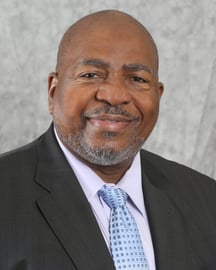
Uzee Brown, Jr.
Professor Emeritus

Aaron Carter-Ényì
Assistant Professor

Benjamin Dawson
Assistant Professor NTT
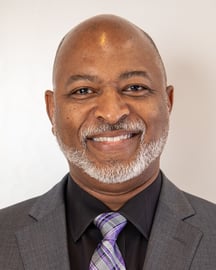
Melvin Foster
Associate Provost for Academic Success/Associate Professor

William Herron
Adjunct Professor

Chad “Sir Wick” Hughes
Associate Professor
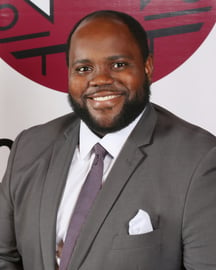
Timothy Miller
Assistant Professor
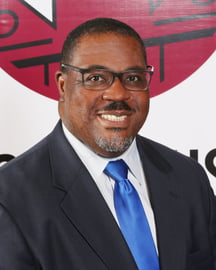
David Morrow
Professor
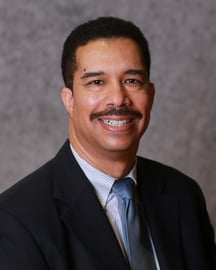
Robert Tanner
Associate Professor
